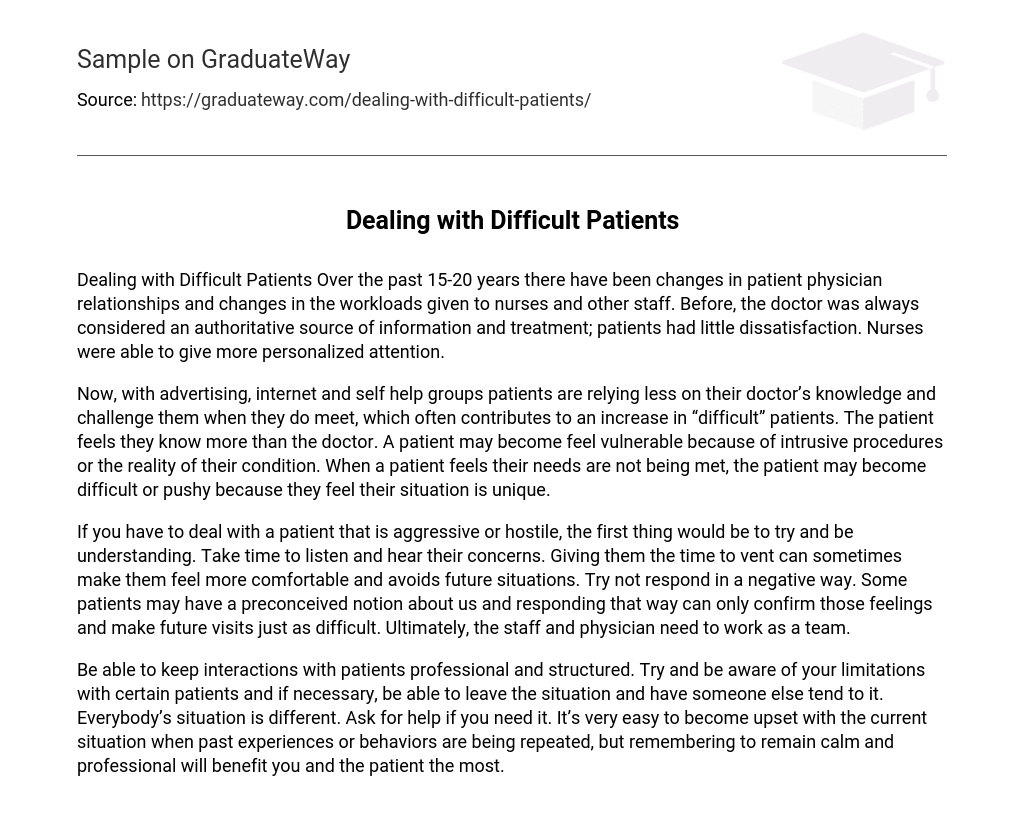Dealing with Difficult Patients Over the past 15-20 years there have been changes in patient physician relationships and changes in the workloads given to nurses and other staff. Before, the doctor was always considered an authoritative source of information and treatment; patients had little dissatisfaction. Nurses were able to give more personalized attention.
Now, with advertising, internet and self help groups patients are relying less on their doctor’s knowledge and challenge them when they do meet, which often contributes to an increase in “difficult” patients. The patient feels they know more than the doctor. A patient may become feel vulnerable because of intrusive procedures or the reality of their condition. When a patient feels their needs are not being met, the patient may become difficult or pushy because they feel their situation is unique.
If you have to deal with a patient that is aggressive or hostile, the first thing would be to try and be understanding. Take time to listen and hear their concerns. Giving them the time to vent can sometimes make them feel more comfortable and avoids future situations. Try not respond in a negative way. Some patients may have a preconceived notion about us and responding that way can only confirm those feelings and make future visits just as difficult. Ultimately, the staff and physician need to work as a team.
Be able to keep interactions with patients professional and structured. Try and be aware of your limitations with certain patients and if necessary, be able to leave the situation and have someone else tend to it. Everybody’s situation is different. Ask for help if you need it. It’s very easy to become upset with the current situation when past experiences or behaviors are being repeated, but remembering to remain calm and professional will benefit you and the patient the most.





